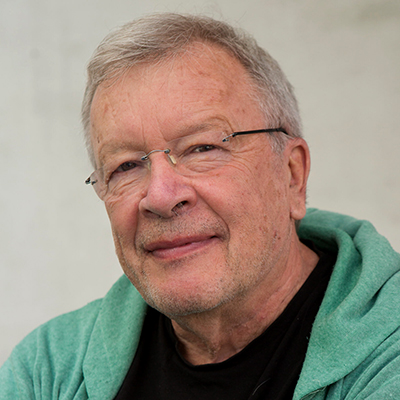In his exploration of plays named after objects, Mario Telò offers a new approach to the politics of familial and social relations in Roman comedy.
A Book is Born: The End Doesn’t Happen All at Once
Chi Rainer Bornfree and Ragini Tharoor Srinivasan met as doctoral students in UC Berkeley’s Rhetoric department. The friends became writing partners, collaborating on stories as they lived through the pandemic. The collaboration culminated in the publication of their 2025 memoir The End Doesn’t Happen All at Once.
Concrete Encoded: Poetry, Design, and the Cybernetic Imaginary in Brazil
Nathaniel Wolfson shows how the concrete movement in art and poetry — which burst onto Brazil’s cultural stage in the 1950s, during a dizzying period of modernization — presciently grappled with an emerging information age.
Michel Foucault and the History of Madness
In conjunction with the Townsend Center's art exhibition by Patrick Chambon, panelists explore the subject of madness in the work of renowned French philosopher Michel Foucault.
Mark Goble explores how slow motion in film and literature reveals a deep cultural fascination with the uneven speeds of modern life and our ability to comprehend them.
Fiona McFarlane's gripping collection of short stories explores the reverberations of a serial killer’s crimes in the lives of everyday people.
Television writer and creator Sanjay Shah '99 discusses the realities of entertainment writing, from breaking into the industry to running a writers' room, offering advice to students.
Prominent Russian writer Victor Erofeev offers a provocative exploration of the “new barbarism” of the 21st century, in which power eclipses justice.
Hannah Zeavin tells the complicated story of American techno-parenting, for an object lesson in how using technology in our most intimate relationships became a moral flash point.
Fellowship and Research Support Opportunities at the National Humanities Center
Leaders of the National Humanities Center discuss their fellowship and research support for faculty, offering tips for writing strong proposals and seeking application support.









